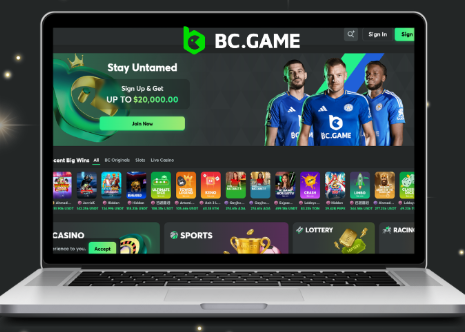
Understanding the Verification BC Game Process: A Comprehensive Guide
In the dynamic world of online gaming, ensuring the security and authenticity of each participant is crucial. This is where the verification bc game process plays a pivotal role. As online gaming platforms grow in popularity, so do the efforts of cybercriminals seeking to exploit vulnerabilities. Therefore, implementing robust verification processes becomes indispensable.
What is Verification in BC Gaming?
Verification within the context of BC gaming refers to the procedures undertaken by gaming operators to confirm the identity of their users. The primary aim is to guarantee that players are who they claim to be, thereby preventing fraud, identity theft, and underage gaming. This process usually involves collecting personal information and supporting documents from users to affirm their legitimacy.
Why is Verification Important?
Several key reasons underline the importance of the verification process in BC gaming:
- Security: Verification ensures that each user account is linked to a real individual, minimizing the risk of fraudulent activities such as account takeovers or phishing attempts.
- Legal Compliance: Different regions have specific laws regarding online gaming. Verification processes help operators adhere to these laws, particularly in verifying the age and location of their users.
- Responsible Gaming: By verifying users, gaming platforms can better encourage responsible gaming and prevent individuals under the legal gaming age from accessing their services.
- Fair Play: Ensuring that players are legitimate means that games remain fair and free from manipulation by malicious entities.
Steps in the Verification Process
The exact steps involved in BC game verification can vary among platforms, but typically include the following elements:
1. Registration
The verification process usually begins at the registration stage. Here, new users are prompted to provide basic information, such as their name, email address, and date of birth. This information forms the foundation for further verification steps.
2. Email and Phone Verification

To ensure that the user’s contact information is genuine, platforms often send a verification link to the provided email address or a code to the registered phone number. This step confirms the user’s direct access to these contact methods.
3. Identity Verification
This is arguably the most critical step in the verification process. Users might be required to upload copies of government-issued identification documents, such as a passport or driver’s license. Some platforms also require a selfie or video call to match the individual’s identity to the submitted documents.
4. Address Verification
To further substantiate user information, proof of address may be required. This can be fulfilled through utility bills, bank statements, or other official documents displaying the user’s name and address, dated within the last few months.
5. Payment Method Verification
If users plan to transact on the platform, verifying their payment methods is a crucial step. This might involve a small temporary charge to a credit card or providing screenshots of account details to confirm ownership.
Challenges in the Verification Process
While the importance of verification is clear, the process is not without challenges:
- User Experience: Lengthy or complicated verification procedures can discourage users from completing the registration process, leading to potential loss of customers.
- Privacy Concerns: Users may be hesitant to share personal documents due to privacy concerns. It is crucial for platforms to communicate how data will be stored and used securely.
- Technical Difficulties: Verification processes relying on technology, such as video verification, may face technical challenges or bugs, leading to user dissatisfaction.
Improving Verification Processes
As threats continue to evolve, so must verification processes. Here are some strategies that platforms can adopt to enhance their verification systems:
1. Invest in Technology
Integrating AI and machine learning can streamline verification. These technologies can quickly analyze documents, verify identities, and even detect fraudulent behavior.
2. User Education
Educating users about the importance of verification in safeguarding their gaming experience is essential. When users understand the benefits, they are more likely to comply readily.
3. Balancing Security and Convenience
Platforms must find the sweet spot between rigorous security measures and user-friendly experiences. Offering tiered verification stages, where basic features are available with minimal verification, might help attract more users.
The Future of Verification in BC Gaming
The verification landscape is rapidly evolving with technological advances and changing regulatory requirements. Here are some trends we are likely to see:
- Biometric Verification: Using facial recognition or fingerprint scans could become more common, increasing security while speeding up the process.
- Blockchain Technology: The decentralized and transparent nature of blockchain could provide a secure means for verifying and storing user data.
- Regulatory Changes: Region-specific laws will continue to shape verification requirements. Platforms must stay proactive in adapting to these changes.
Conclusion
In summary, the verification BC game process is a vital component of maintaining security, legal compliance, and a fair environment in online gaming. As challenges persist, ongoing technological advancements and strategic adaptations will be key to refining verification processes. This ensures that both the players and the platforms can enjoy a secure and enjoyable gaming experience. By understanding and embracing these developments, BC game platforms can not only protect their user base but also foster greater trust and loyalty among their community.

Diese Seite ist äußerst! Ohne die hier gebotenen Infos wäre ich verloren.
I was suggested this blog by my cousin. I am no longer sure whether this post is written by him as no one else realize such unique approximately my difficulty.
You are amazing! Thank you!
I visit every day a few web sites and websites to
read content, however this website provides quality based content.
I think that everything posted was very reasonable. But, what about this?
suppose you were to create a killer title? I mean, I don’t wish to
tell you how to run your website, however suppose you added something that
makes people want more? I mean Understanding the Verification BC Game Process A Comprehensive
Guide | Sandblast para tu negocio is kinda
plain. You ought to peek at Yahoo’s front page and note how they
create article headlines to get people interested. You might add a related video or a picture or two to grab readers excited about what
you’ve written. Just my opinion, it would bring your posts a little livelier.
I read this post completely regarding the resemblance
of most recent and earlier technologies, it’s amazing article.
It’s a pity you don’t have a donate button! I’d certainly donate
to this fantastic blog! I guess for now i’ll settle for bookmarking and adding your RSS feed
to my Google account. I look forward to brand new updates and will talk about this website with my Facebook group.
Talk soon!
Do you have any video of that? I’d care to find out
some additional information.
This article gives clear idea designed for the new visitors of blogging, that actually
how to do blogging and site-building.
I think what you published was actually very reasonable.
But, consider this, what if you composed a catchier title?
I mean, I don’t want to tell you how to run your website, however what if
you added a title that makes people want more?
I mean Understanding the Verification BC Game Process A Comprehensive Guide | Sandblast para tu negocio is kinda plain.
You might glance at Yahoo’s front page and see how
they create post headlines to grab viewers to click. You might try adding a video or a related pic or
two to grab people interested about what you’ve written. Just my opinion, it might make your website
a little livelier.
Someone essentially lend a hand to make seriously posts I would state.
This is the very first time I frequented your website page and so far?
I surprised with the analysis you made to make this actual publish incredible.
Fantastic job!
Hey there would you mind letting me know which webhost
you’re utilizing? I’ve loaded your blog in 3 completely different web browsers
and I must say this blog loads a lot faster then most.
Can you recommend a good internet hosting provider at a reasonable price?
Many thanks, I appreciate it!
My brother recommended I might like this blog. He used to be totally right.
This post actually made my day. You cann’t consider just
how much time I had spent for this information!
Thanks!